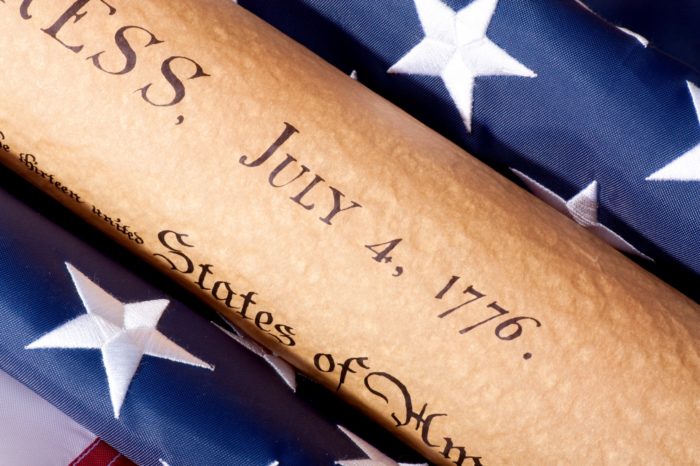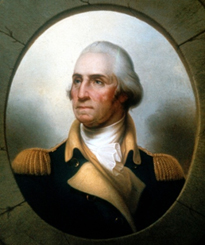From Rum to Musket Balls: The Fourth of July in History
By Guest Blogger Ellen M. Nye
As people across the country gather for fireworks displays, reenactments, and parades, we celebrate our country’s history and discover again the joys of learning about the United States’ past.
Independence Day was only declared a federal holiday in 1870, and it was not until 1941 that it was designated as a paid holiday for federal employees. Yet people have been celebrating the official adoption of the Declaration of Independence in a variety of ways since 1776.
Many cities and towns marked the schism with Britain by reading the Declaration of Independence aloud before a crowd. On July 9th, 1776 George Washington himself read the document in New York City, not far from the British naval ships occupying the harbor. The words inspired wild cheering and some patriots were so moved that they tore down and decapitated a statue of George III. The statue was then melted down into 42,000 musket balls for Washington’s army. Other colonists in 1776 celebrated the end of the British monarchy’s control not by beheading a statue of the king, but by preparing mock funerals for him.
In 1777, Philadelphia was the first city to recognize the anniversary of the adoption of the Declaration of Independence by adjourning Congress, ringing church bells, building bonfires, and even lighting fireworks. These customs then spread to other cities. For soldiers fighting away from home, George Washington acknowledged the date by doubling the troops’ rum provisions. Months before this army’s victory at Yorktown, Massachusetts became the first state to declare July 4th an official state holiday.
 Though our celebrations have only grown larger and more expensive since these early fêtes, our knowledge of American history desperately needs to be revived. In 1986, 33% of American high school students were unable to identify the Declaration of Independence, let alone explain its history. More recent research shows little improvement.
Though our celebrations have only grown larger and more expensive since these early fêtes, our knowledge of American history desperately needs to be revived. In 1986, 33% of American high school students were unable to identify the Declaration of Independence, let alone explain its history. More recent research shows little improvement.
Especially in Massachusetts, the scene of so many important events in the early American history from James Otis’ 1761 speech “Against the Writs of Assistance” to the War of 1812, we ought to be aware of our history. The Fourth of July celebrations this week should remind us of the remarkable stories of American history and the importance of teaching them in our schools.
For further information:
History.com on the Fourth of July





